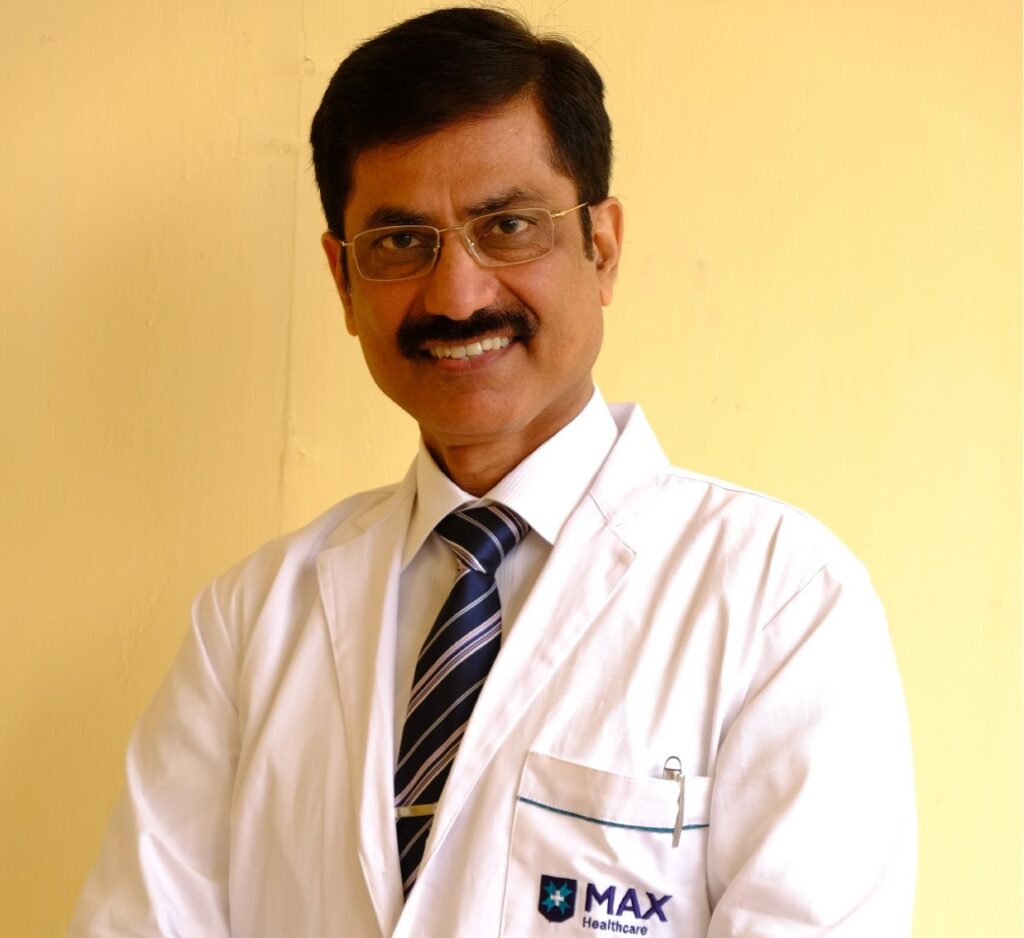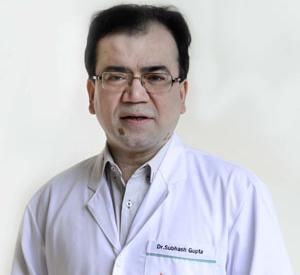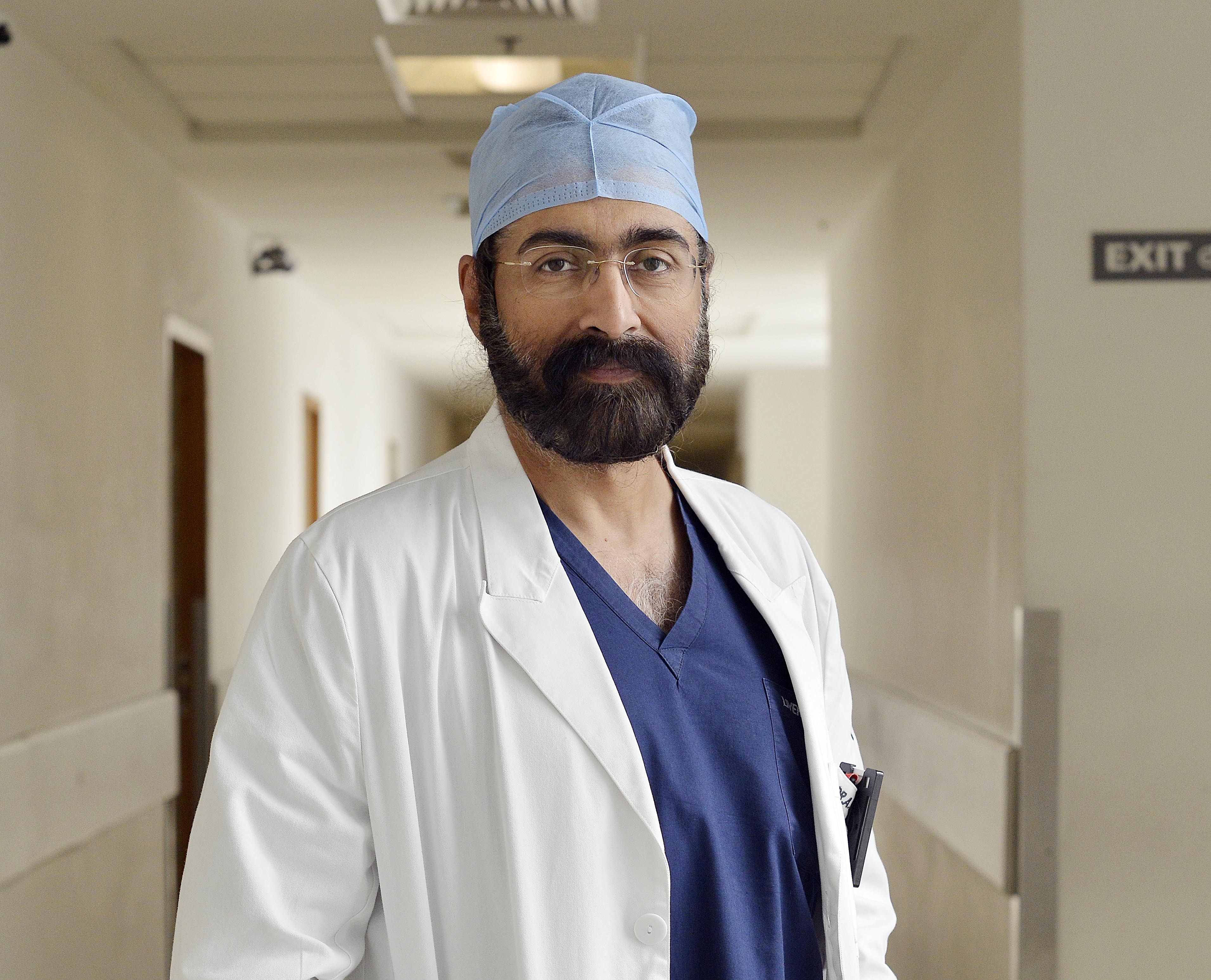Organ transplantation is one of the most common reasons for medical tourists to travel to India. India is well-known as a global center for numerous specialists and surgeons. Every year, about 1800 liver transplants take place in the country.Here you will read about top liver surgeons in India such as their work experience, working hospital etc.
When it comes to liver transplantation, India has highly qualified personnel and super-specialist physicians. Patients and their family members look for some of the best liver transplant surgeons in India, to facilitate their requirements.

A healthy liver and a non healthy liver
The Liver and its Functions
The liver lies in the top right corner of the abdomen. The blood chemical levels of the body are controlled by the liver. A yellow transparent fluid, bile, is also secreted by the liver.
In order to be digested and absorbed more easily, lipids or fats must first be broken down by bile.
This blood is refined by the liver, which also breaks down, balances, and produces nutrients that are needed by the body. Additionally, it changes blood-borne medicines into simpler forms that can be utilized by the body.
A person can have the liver disease if they experience jaundice, or unusual liver function test results. There can be numerous types of liver disorders. Some of them are:
- Diseases brought on by viruses, including hepatitis C, B and A
- Diseases brought on by drugs, excessive drinking and toxins
- Cirrhosis and fatty liver disease
- Liver tumor
- Genetic disorders like hemochromatosis and Wilson disease
Top Causes of Liver Disease
Following are one of the few reasons for liver disease.
Infection
The liver can become infected by viruses and parasites, which results in inflammation and decreased liver function. Hepatitis viruses, such as A, B, and C, are the most prevalent causes of liver infection.
Immune System Dysfunction
The liver may be impacted by autoimmune diseases, which occur when the immune system starts to attack particular body organs.
Growths such as Cancer
There are at times cancerous infections in liver which starts slowing down the proper function of liver.
Genetics
When different substances accumulate in the liver as a result of a faulty gene, it can lead to liver disease.
The following are additional, typical causes of liver disease:
- Long-term alcoholism
- Fat accumulation in the liver (fatty liver disease)
Signs and Symptoms
Generally, there aren’t obvious symptoms and indicators of liver disease, which makes it difficult to catch it in the initial stages. However, there are certain symptoms, which can be indicative of liver disease and should not be ignored:
- Swelling and pain in the abdomen
- Eyes and skin that seem yellowish (jaundice)
- Skin itch
- Edema in the ankles and legs
- Light-colored stool
- Continual tiredness
- Reduced appetite
- Nausea or diarrhea
- The propensity for bruising easily
How Can One Maintain Healthy Liver?
The liver is in charge of digesting fats, consuming an excessive amount of them can tax the liver and distract it from other functions. Additionally, there are connections to fatty liver disease in this.
Limit the intake of alcohol. Overindulgence in alcohol damages the liver and results in cirrhosis.
Illegal substances can poison the liver. Avoiding these substances can free up the liver to carry out its essential tasks without interference.
Be careful while combining medications because some prescription pharmaceuticals and herbal treatments may interact poorly. The liver is under a lot of strain when alcohol and medications are combined.
Chemicals in the air can harm the liver. It’s important to have a well-ventilated environment, especially while painting or using potent cleaning or gardening chemicals. It is always better to wear a mask when entering a polluted area, etc.
If a person is going to a place where hepatitis A or B may be a problem, vaccination is necessary. Yellow fever can cause liver failure, and malaria thrives and multiplies in the liver.
There is no hepatitis C vaccine, therefore prevent the disease through safe sex practices.
Avoid coming into contact with blood and germs; seek medical assistance if a person is exposed to someone else’s blood.
It is also important to eat healthy food and to work out regularly to keep livers healthy.
Taking care of these small things can go a long way and protect your livers.
Treatment for Liver Problems
The treatment of a person depends on the diagnosis made by the doctor. Certain liver conditions can be controlled with medicine and lifestyle changes, such as decreasing weight or giving up drinking.
This is usually part of a medical plan that includes continuous liver function monitoring. Other liver issues can need surgery.
A liver transplant may eventually be needed as treatment for liver disease that causes or has caused liver failure.
Are Liver Diseases Curable? What Are Their Success Rates?
There is no permanent cure for liver disease. However, certain steps can be taken to prevent the disease from getting worse, depending on the underlying cause of the condition.
Depending on the underlying reason, acute liver failure can occasionally be cured. But in many cases, a liver transplant may be the only treatment available.
The average lifespan of those who have a liver transplant is around 75%. Thus, for every 100 individuals who undergo a liver transplant for any reason, approximately 75 will survive for five years.
What Are the Benefits of Surgery/Treatments for the Liver?
The benefits of liver treatment are:
- It increases the lifespan of the patients
- Provides good quality of life
- Reduces chances of mortality
- People are energetic after treatment
- Patients lead a normal life
How Do We At MyMedTrip.com Assist Patients With Liver Treatment?
India has some of the top hospitals in the world for patients suffering from liver disease. These healthcare centers use cutting-edge technology to offer unique diagnostic and therapeutic services. Due to the affordable treatments provided by these facilities, patients come to India for their medical care.
The Indian healthcare system has highly qualified doctors and post-operative care staff that can handle any situation.
Should you decide on travelling to India for medical assistance, you may email us at hi@mymedtrip.com or WhatsApp at +91 9818237391. You can also contact us here.
The first consultation arranged by us would be free of cost! Additionally, we also provide visa invitation letters and help in facilitating the medical journey to India.
For any further assistance/queries or questions related to the disease as well as our services in India, do not hesitate to email us at the aforementioned address. We shall be glad to assist you and help you get well soon.
Best Liver Doctors and Surgeons in India
The liver is the human body’s largest internal organ, and it is responsible for numerous complicated activities. Liver transplantation is a procedure that replaces a malfunctioning liver with a portion of a healthy liver from a donor.
It is a complex procedure and therefore requires highly qualified doctors. In the list below we have tried to list a few of the top liver specialists in India.

Dr. Vivek Vij
Fortis Memorial Research Institute, Gurugram
Dr. Vivek Vij is a pioneering liver transplant surgeon who has had a perfect safety record since the procedure’s commencement in the country. With 16 years of expertise as a specialist, he is among the best doctors for liver transplants in India. He practices at Fortis Hospital.
He was the first Indian surgeon to publish a series of laparoscopic donor hepatectomy cases in the Liver Transplantation journal. Dr. Vij is the youngest liver transplant doctor in India, with the lowest biliary complication rate of approximately less than 5%, and has completed over 800 independent liver transplants.
Dr. Vij, together with his team has performed more than 2,500 liver transplants with an impressive success rate of 95%. He is a renowned personality and is famous for his abilities not just in India, but also throughout Asia. He had written and presented his work on many national and international platforms.

















